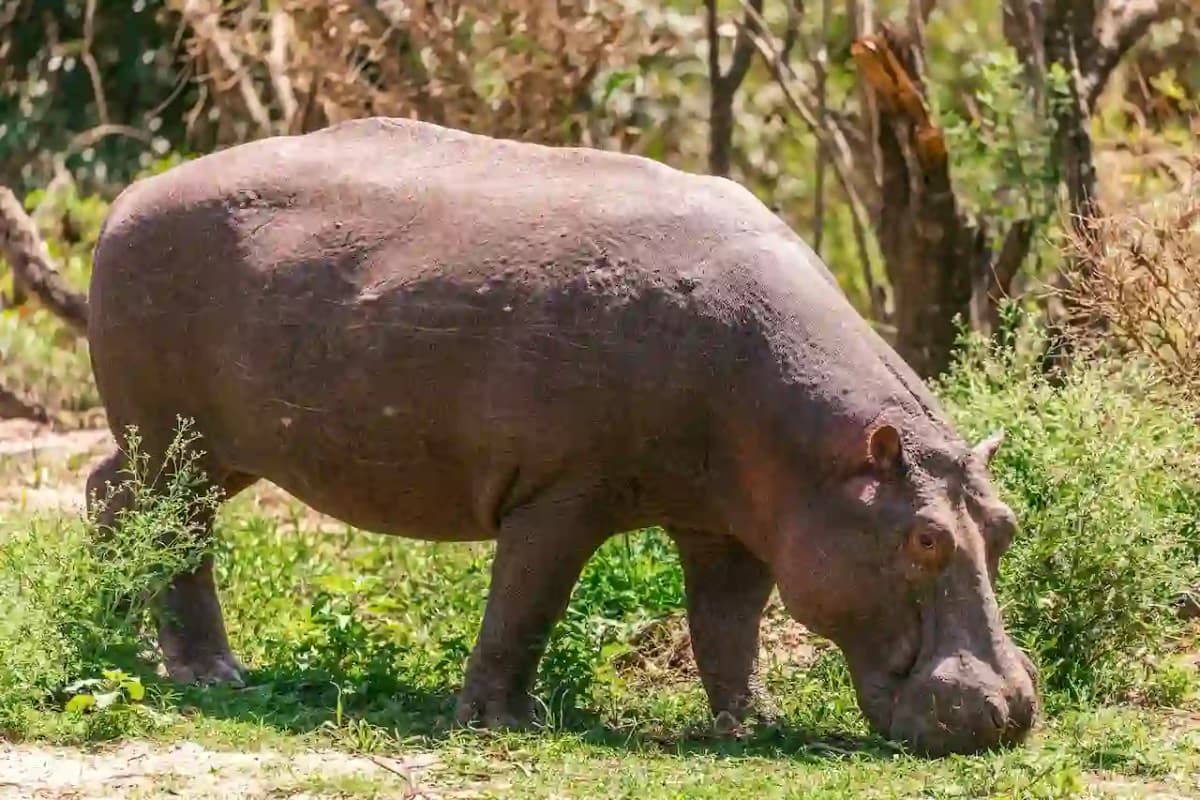Random Hippo Facts | The hippopotamus, also known as the river horse, is a fascinating creature found in the rivers and lakes of Africa. Despite its calm appearance, it's one of the most aggressive animals out there. With their huge size and powerful jaws, hippos cause more human deaths in Africa than any other large mammal. Surprisingly, not many know that hippos can run faster than humans on land. These semi-aquatic mammals can reach speeds of up to 30 kilometers per hour when they're threatened or trying to show dominance.
Hippos have some amazing adaptations that make them perfect for life in the water. Even though they look clumsy on land, they're actually built for swimming. Their eyes and nostrils are positioned high on their heads, so they can stay mostly submerged while still seeing and breathing easily. Plus, they produce a red liquid called "blood sweat", which acts as sunscreen and helps protect them from infections. These unique characteristics show just how incredible and adaptable these gentle giants really are!
Most Interesting Facts About Hippo
One of the most fascinating things about hippos is that they are naturally buoyant in water. Their bodies have air-filled cavities that help them float, similar to how a boat stays afloat. This buoyancy allows them to effortlessly move through the water and even sleep while submerged. Additionally, their eyes, ears, and nostrils are located on top of their head, allowing them to stay mostly above water while still being able to see, hear, and breathe. This special adaptation makes hippos perfectly suited for their watery habitat, enabling them to thrive in rivers, lakes, and wetlands across Africa. Also see:- Random Facts about Lions, Random Facts about King Penguins

In conclusion, hippos are even more fascinating than they appear at first glance. Beyond their impressive size and appearance, they have a range of intriguing characteristics that make them truly captivating creatures. From their unique adaptations for aquatic life to their surprising agility on land, hippos continue to surprise and amaze us with their complexity.
